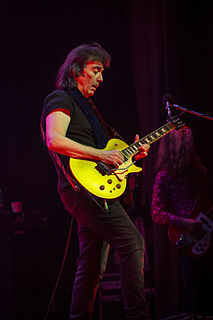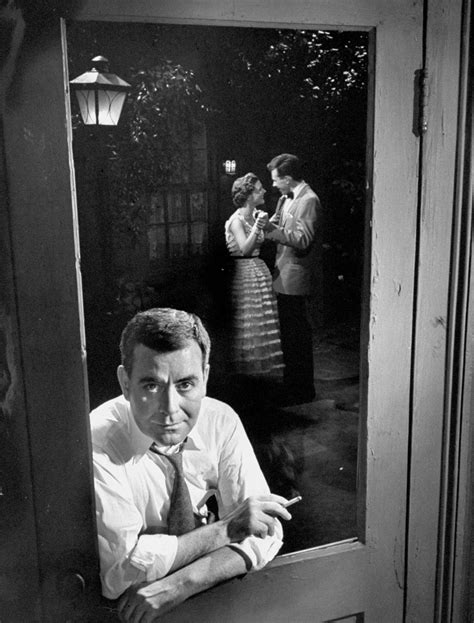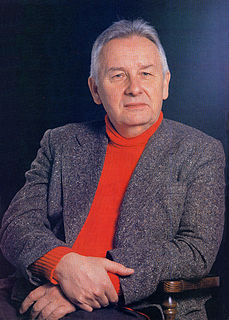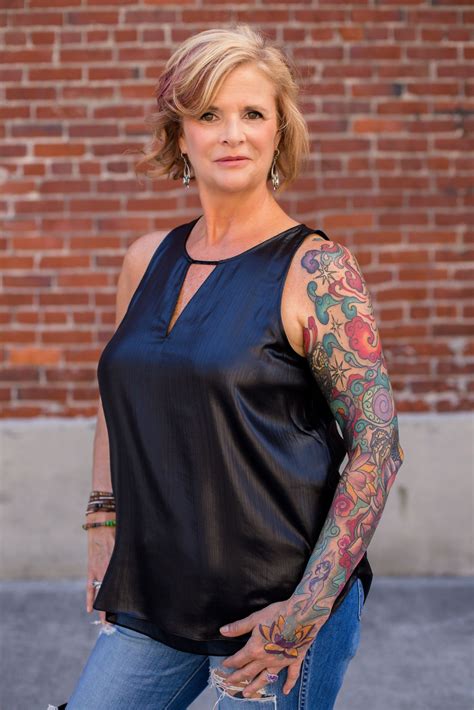A Quote by John Updike
I have never believed that one should wait until one is inspired because I think the pleasures of not writing are so great that if you ever start indulging them you will never write again.
Related Quotes
When you first start writing-and I think it's true for a lot of beginning writers-you're scared to death that if you don't get that sentence right that minute it's never going to show up again. And it isn't. But it doesn't matter-another one will, and it'll probably be better. And I don't mind writing badly for a couple of days because I know I can fix it-and fix it again and again and again, and it will be better.
The poet is never inspired, because he is the master of that which appears to others as inspiration. He does not wait for inspiration to fall out of the heavens like roasted ortolans. He knows how to hunt...He is never inspired because he is unceasingly inspired, because the powers of poetry are always at his disposition, subjected to his will, submissive to his own activity.
I have a process that I seem to always, to some degree, as a writer, adhere to, but I certainly have never imposed the way I write a novel on my students. When I had students, I never said, "You should never start writing a novel until you have the last sentence." I never did that, and I wouldn't do it now, but people now seem so interested in the process [of writing fiction] that I have to constantly make it clear when I describe mine that I'm not being prescriptive. I'm not proselytizing.
When I'm recording, which is synonymous with writing, I'll play things over and over again until it sounds like I've got the right guitar part. Whereas I think, as the much younger player I tended to do things much more consciously. I didn't wait for the moment where inspiration might strike. That's what I do now. I wait for it to naturally start to replay itself in my mind. As I say, I don't force it. So I like to think of myself as a receiver. I'm a telephone line to who knows where, but until I hear it through that receiver, I don't usually do it. It's got to start writing itself somehow.
I do not choose my listeners. What I mean is, I never write for my listeners. I think about my audience, but I am not writing for them. I have something to tell them, but the audience must also put a certain effort into it. But I never wrote for an audience and never will write for one, because you have to give the listener something and he has to make an effort in order to understand certain things.
If people ever look down upon you for crying for fictional characters, you should give them a gentle, pitying look and feel bad for them. If they've never cried for a fictional character, then they've never loved one (and what a joy that is). If they've never cried at a book, a movie, a piece of music, then they've missed one of the great pleasures life has to offer. Just because fiction does not contain things that are real doesn't mean it doesn't contain truth, and we find it through the alchemy of our tears.
You always think, 'Oh, if only I had a little chalet in the mountains! How great that would be and I'd do all this writing' Except, no, I wouldn't. I'd do the same amount of writing I do now and the rest of the time I'd go stir crazy. If you're waiting for the perfect moment you'll never write a thing because it will never arrive. I have no routine. I have no foolproof anything. There's nothing foolproof.
If you wait until you got time to write a novel, or time to write a story, or time to read the hundred thousands of books you should have already read - if you wait for the time, you will never do it. ‘Cause there ain’t no time; world don’t want you to do that. World wants you to go to the zoo and eat cotton candy, preferably seven days a week.
How will it ever be bearable, Priestess?” His voice was rough. He sounded completely broken. “You’ll see her again. She’s with Nyx now. She’ll either wait for you in the Goddess’s meadow, or she’ll be reborn and her soul will find you again during this lifetime. You can bear it because you know that spirit never really ends-we never really end.
I really only write about inner landscapes and most people don't see them, because they see practically nothing within, because they think that because it's inside, it's dark, and so they don't see anything. I don't think I've ever yet, in any of my books, described a landscape. There's really nothing of the kind in any of them. I only ever write concepts. And so I'm always referring to "mountains" or "a city" or "streets." But as to how they look: I've never produced a description of a landscape. That's never even interested me.






































